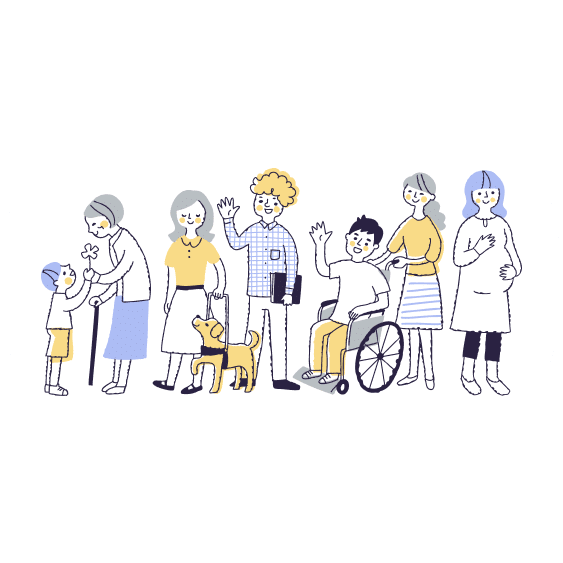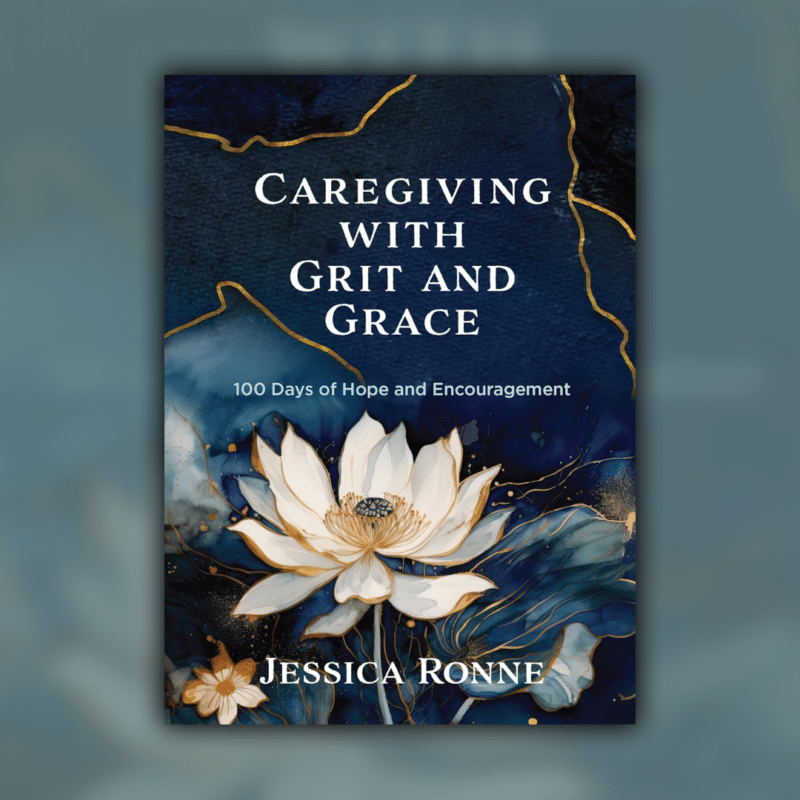Why Caregivers?
Why should faith communities care about supporting caregivers?
Faith communities of all kinds are entrusted with a sacred mission to care for others. The number of people stepping into the role of caregiver is growing, and faith communities are uniquely positioned to offer support to this very important — but often overlooked — segment of your community. Creating a culture that supports the wellbeing of caregivers will benefit everyone — after all, one measure of impact is how well your community serves those in the most need.
This toolkit is designed to help churches, temples, faith centers and other places of worship implement practical strategies to provide encouragement and care to caregivers and their dependents, transforming what can often feel like a heavy burden into one of life’s greatest blessings.
Caregiver’s challenges can often be invisible or easily forgotten over time.
There are likely more caregivers in your community than you realize. Caregiving is often a long-term process with enduring health and financial impacts. (Data source 1, Data source 2, Data source 3)
43.5 Million
People who have provided unpaid care to an adult or child in the last 12 months
24.4
Average hours per week providing care
23%
Caregivers reporting their health has worsened
$7,242
Average annual out-of-pocket cost for a caregiver (26% of the caregiver’s income on average)
Faith is an important part of life for many caregivers.
Churches and faith communities have a unique opportunity to extend their resources to the caregivers of the congregation who may simply be too exhausted and overwhelmed to call for help. (Data source)
70%
Caregivers whose spiritual/religious faith has “a great deal” of importance in their lives
42%
Caregivers who attend religious services at least once a week
75%
Caregivers who pray regularly to cope with the demands of their caregiving responsibilities


Build Understanding of Caregiving
Understanding Caregiving
What does it mean to be caregiver-friendly?
A caregiver-friendly church or faith group provides support to their caregiver members and their dependents by striving to meet their spiritual, physical, and emotional needs.
The first step to becoming caregiver-friendly is understanding what it means to be a caregiver and what challenges they often face.
Article
Supporting Caregivers in Your Faith Community: 4 Questions to Ask
Learn the four essential questions churches and faith-based communities should ask as they work to become more caregiver friendly.

![]()
Don’t Wait, Get Started Today
Get Started Now
You can create a space of faith, support and connection for caregivers.
We’ve identified three primary pillars of a caregiver-friendly faith community:
- Culture
- Accessibility, and
- Practical support.
The following tools are designed to help you establish a strong foundation of support for caregivers that you can then build upon.
1. Culture
A caregiver-friendly culture takes steps to emphasize the important work of caregivers through policy, messaging, and programming. A culture of care is fostered through acknowledging caregivers as part of the family and taking steps to recognize their contributions and share their stories.
Article
Creating a Culture of Care
Learn how your faith community can create a culture of care by recognizing caregivers, supporting caregiver-focused organizations, valuing their contributions, and telling their stories.

Article
Say This, Not That: Faith Edition
It can be tricky to find common ground with someone in a situation you don’t relate to. But following a few guiding principles and learning some specific phrases to avoid can be a good start.
2. Accessibility
A place of worship is a home to all sorts of people, some of whom have different needs. Taking the time to ensure your building and programs are accessible to all people with disabilities will go a long way to make visitors feel welcome and seen.

Article
Accessibility: The Heart of a Caregiver-Friendly Faith Community
To make your church or place of worship a safe and supportive space for caregivers, it must also be accessible and welcoming to those they care for. Learn more about key areas where you can improve accessibility.
3. Practical Support
Often caregivers really just need a group of people they can count on, and faith-based organizations have friendly faces and helping hands in spades. There are plenty of things you can do to offer practical, day-to-day support for caregivers and their families when things get tough.

Article
Equipping Your Faith Community to Support Caregivers
Get tips for how to prepare your congregation to care for caregivers.

Article
12 Ways to Support Parent Caregivers
Explore practical ways to support caregivers in need, provided by caregivers themselves.

Article
Desperate for Respite: Supporting Caregivers Through Respite
Offering respite is one of the most impactful ways to support caregivers. Discover how to get started.

![]()
More Helpful Resources
Additional Resources
Get more resources for supporting caregivers.
Fostering a caregiver-friendly faith environment is essential for supporting those who dedicate themselves to caring for others.
For more resources, browse our Caregiver Toolbox and connect with our partners below.

Start the Conversation in Your Faith Community with a Screening of the “Unseen” Documentary
Host a screening at your place of worship and invite your members and the local community to learn more about the unfiltered realities of caregiving. A screening is a great way to start conversations about the urgent need for support by offering viewers the chance to “see” life from a caregiver’s point of view. Show your caregivers you want to support them by requesting a screening today.
Connect with Our Partners


Spreading Sunshine is spreading joy to families experiencing childhood illness.
The world of chronic illness can be a dark and lonely place, and many families experience unique challenges when navigating this extremely difficult landscape. Spreading Sunshine sends individualized care packages to families in hopes of making their days just a little bit brighter.


End caregiver burnout.
Designed for families and care teams, the Innerhive app serves as a central hub of caregiving tools, resources, and community. From daily routines, to advance life planning, Innerhive aims to save caregivers valuable time and energy by making it easy to organize all aspects of care.

Caregiving with Grit and Grace Book
100 Days of Hope and Encouragement – Wisdom and Refreshment for Every Season of Life
Author Jessica Ronne (featured in the UNSEEN documentary) offers solace for your caregiving journey and extends a heartfelt invitation to view your role through the lens of eternity.


